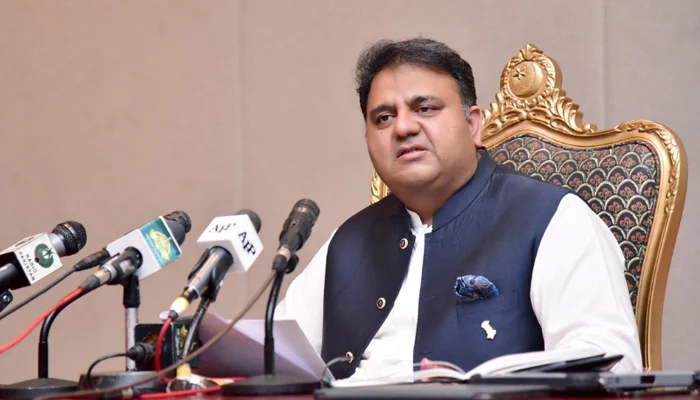Politics
Govt to approach Supreme Court to seek clarity on Article 63(A): Fawad Chaudhry

Latest News
26th Constitutional Amendment: Naqvi Congratulates the Nation on the Amendment’s Approval
Latest News
Barrister Salman Safdar informed the court that it had been 12 days since the last hearing on Bushra’s bail application.
Latest News
The President has signed the 26th constitutional amendment, and a notification has been issued.
-

 Entertainment2 days ago
Entertainment2 days agoReham Khan’s counsel to Hania Amir between marriage versus career
-

 Latest News2 days ago
Latest News2 days agoThe government and the military are successfully combating drug abuse through a nationwide anti-drug operation.
-

 Latest News2 days ago
Latest News2 days agoAt a ceremony held at Mirpur, the Prime Minister of Jammu and Kashmir stated, “We will not hesitate to make any sacrifice for peace in the region.”
-

 Latest News2 days ago
Latest News2 days agoThe 26th Amendment to the Constitution: The Amendment That Completes the Charter of Democracy: Bilawal
-

 Latest News2 days ago
Latest News2 days agoIn the border region, a Lahore police officer was detained for allegedly using drones to smuggle drugs.
-

 Entertainment2 days ago
Entertainment2 days agoThe Punjab government initiates the ‘Dhee Rani’ initiative for underprivileged couples.
-

 Latest News2 days ago
Latest News2 days agoJudicial Appointments in the Supreme Court Will Be Made Transparent: Law Minister
-

 Business23 hours ago
Business23 hours agoChina Contributes 43 New Foreign Firms to the 6% Growth in SECP Registrations




















